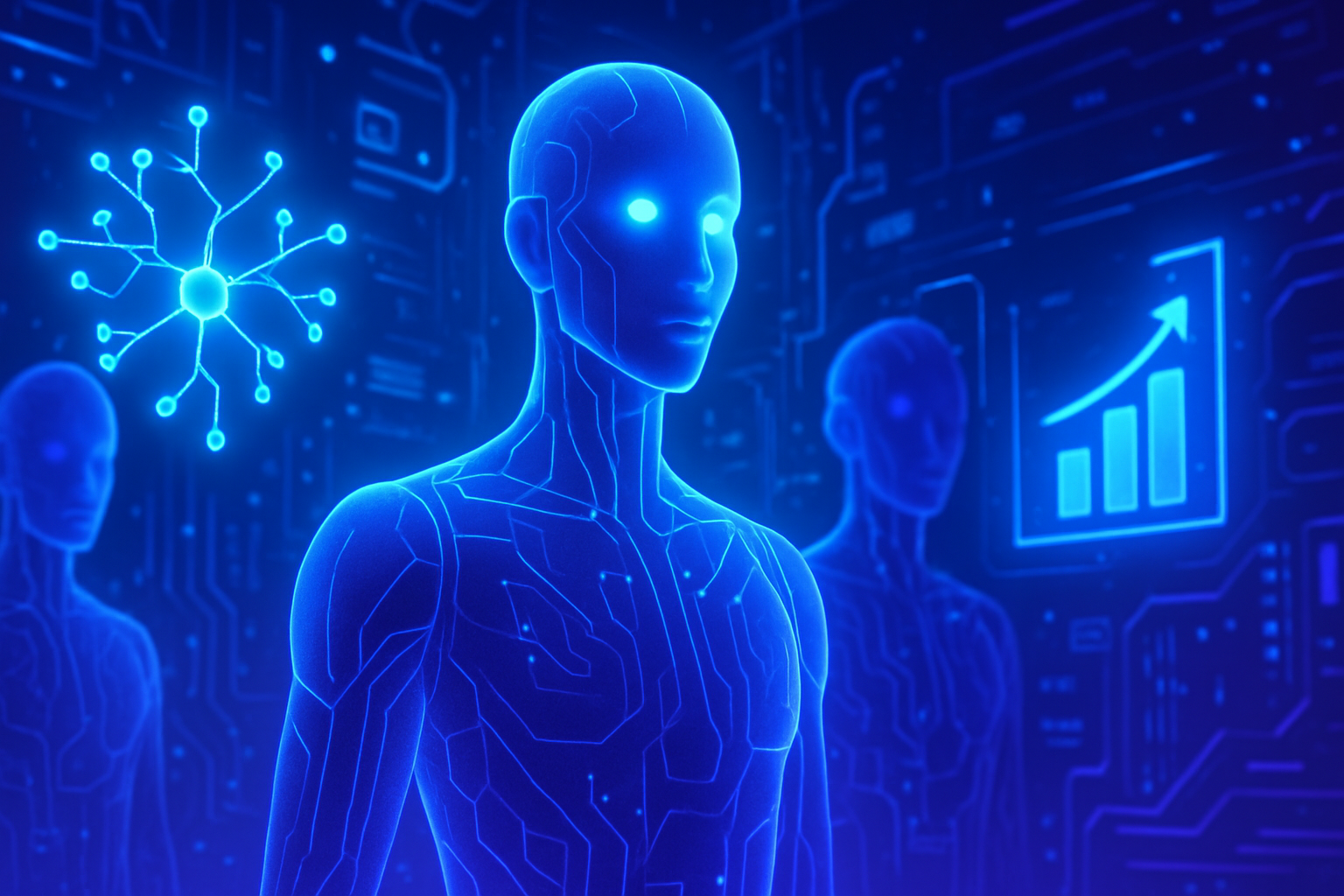China positions itself as the *undisputed leader* in the race for patents in generative artificial intelligence. With more than 38,000 patents filed between 2014 and 2023, this nation has multiplied its innovations sixfold, far surpassing the United States. This dominance raises major questions about the global technological landscape and the resulting balance of power. China’s economic and military power, *supported by these advances*, is redefining current power dynamics. The race for patents is much more than a simple commercial issue; it embodies deep geopolitical ambitions.
Chinese dominance in generative AI patents
China emerges as the undisputed leader in the global landscape of generative artificial intelligence (GenAI) patents. Between 2014 and 2023, Chinese researchers filed more than 38,210 patents related to this revolutionary technology, surpassing the number of applications from the United States by six times. This supremacy reflects massive investment in innovation and research.
A dynamic supported by companies and institutions
Leading companies such as Tencent, Baidu, and Alibaba are among the main contributors to patent filings. Tencent, in particular, stands out with 2,074 patents registered during this period. Academic institutions like the Chinese Academy of Sciences (CAS) are also actively participating in this movement, supported by the Chinese government.
Impact of advanced technologies on society
Applications of generative AI touch all sectors, from healthcare to automotive. For example, in healthcare, these technologies enable the design of new drug molecules and provide personalized treatments. In the automotive industry, generative AI contributes to the design of autonomous vehicles, thereby transforming the transport landscape.
The rise of investments
Colossal investments in generative AI research illustrate a true technological arms race. Tech giants such as Google, Microsoft, and OpenAI are allocating billions of dollars to develop innovative solutions. For instance, the partnership between Microsoft and OpenAI gave birth to ChatGPT, an iconic application of the commercial potential of these technologies.
The geopolitical stakes of AI dominance
Geopolitical tensions related to generative AI are intensifying, with each nation seeking to establish its ascendancy. Technological supremacy will influence international relations and economic alliances. The military capabilities of countries, their trade, and their national security will also be affected by this struggle for control of advanced technologies.
A fragmentation of AI ecosystems
Rivalries between nations could lead to a compartmentalization of technological ecosystems. Competing standards could emerge, creating challenges for the interoperability of AI systems. Countries lagging behind risk facing major economic difficulties, exacerbated by job automation, impacting various sectors of the labor market.
Future perspectives
The future prospects of generative AI technologies are vast. The detection of leaks in high-performance language models is becoming a priority for researchers. Meanwhile, innovations in neuromorphic materials with low energy consumption promise a more sustainable approach to artificial intelligence. However, the security of AI systems, particularly in detecting risks such as battery fires, will be crucial, with studies on advanced alert systems.
Frequently asked questions
Why is China considered the world leader in generative artificial intelligence patents?
China has filed more than 38,000 patents related to generative artificial intelligence between 2014 and 2023, significantly surpassing the United States and other countries. This dominance is due to massive investments from Chinese companies and academic institutions in research and development.
What are the main companies in China filing generative AI patents?
Tech giants such as Tencent, Baidu, and Alibaba stand out in terms of the number of patents filed. Additionally, research institutions like the Chinese University of Science are also very active in this field.
What is the impact of generative AI patents on China’s economic competitiveness?
The patent portfolio strengthens China’s economic competitiveness by enabling it to control and exploit artificial intelligence technologies, thus attracting investors and fostering innovation in various sectors.
How does China use its generative AI patents as part of its geopolitical strategy?
China’s strategy is to use its AI patents to gain technological supremacy and influence its international relations, particularly in the areas of defense, trade, and technology standards.
Does Chinese dominance in AI patents impact research outside of China?
Yes, the patent race and China’s aggressiveness in this area push other countries, notably the United States and South Korea, to intensify their AI investments and innovate rapidly to avoid falling behind.
Which types of industries in China benefit the most from generative AI innovations?
Generative AI innovations affect several sectors, including healthcare with the design of personalized treatments, transportation with autonomous vehicles, and communication technologies that optimize customer service.
How are generative AI patents related to national security concerns for China?
Owning a large number of patents gives China a strategic advantage in technological expertise, which is essential for developing defense technologies and ensuring technological sovereignty.
What is the role of the Chinese Academy of Sciences in the field of AI patents?
The Chinese Academy of Sciences plays a crucial role in conducting fundamental and applied research in artificial intelligence, contributing to a significant number of patents filed, illustrating state support for innovation in the country.
What does this mean for AI start-ups in China in the face of this patent competition?
AI start-ups in China benefit from a rich funding and resource ecosystem but must also navigate a competitive landscape where large companies and research institutions may have an advantage in intellectual property.
What challenges do Western countries need to overcome regarding Chinese dominance in the AI patent sector?
Western countries, like the United States and Europe, face challenges such as the need to strengthen their innovation and intellectual property protection systems, as well as train their talents in artificial intelligence to maintain their competitiveness.






